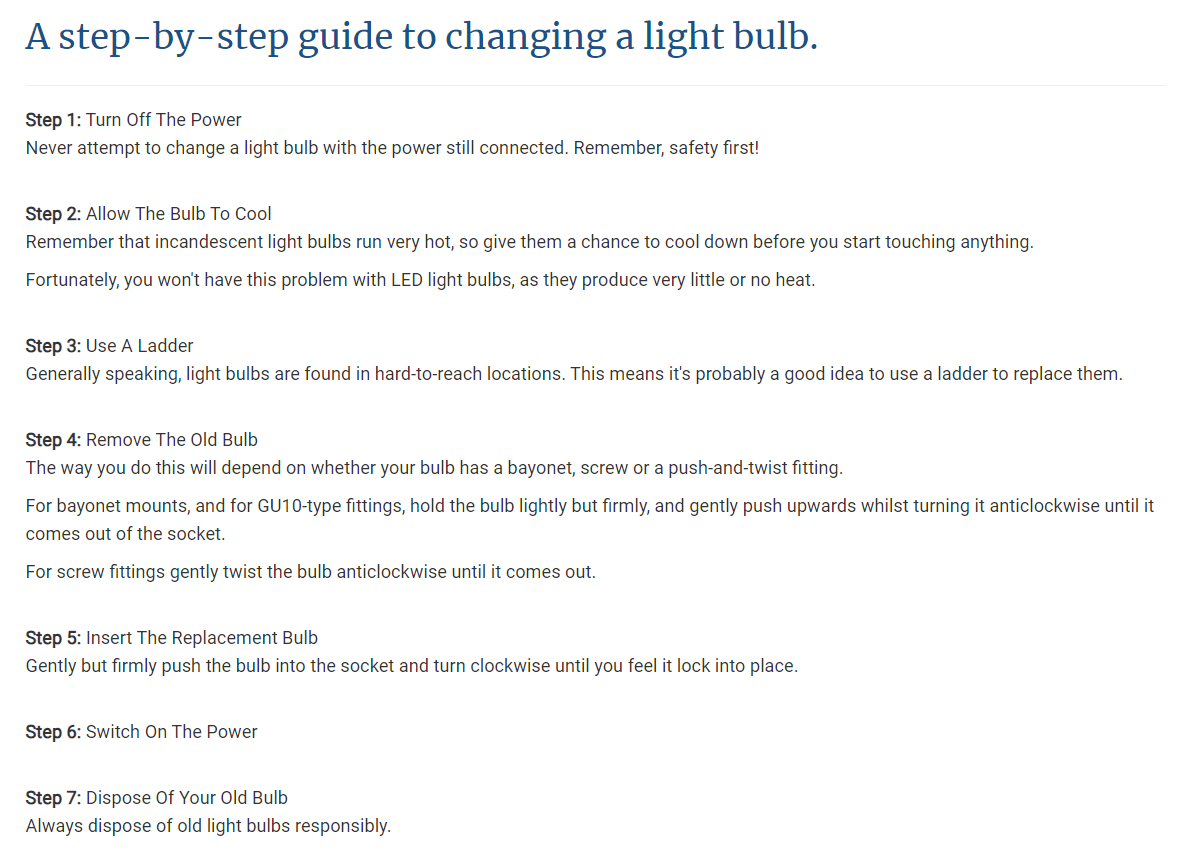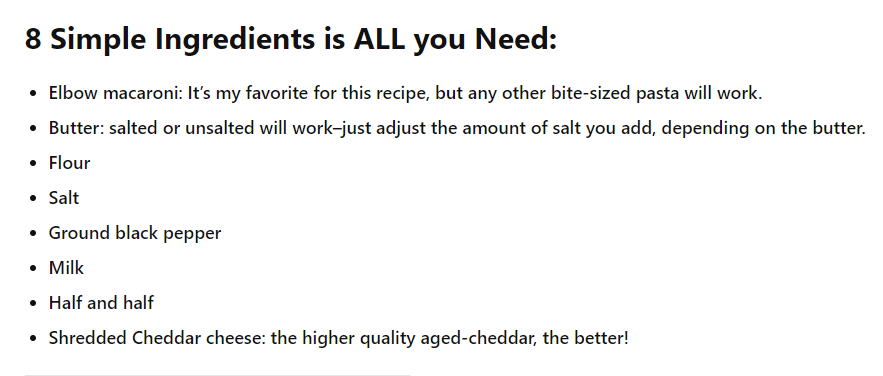In general, blog posts should be around 1500-2000 words — but this total can depend on many factors. Whether you are just starting out or are looking to grow your business’s blog, you should know that word count can matter when it comes to user engagement.
Let’s dive in to discuss more blog types in detail and the exact word counts you should shoot for.
Short form vs. long form: Is longer really better?
Here comes the dreaded answer — it depends. Trust us, we are as frustrated with this vague answer as you are, but there is truth to it. When writing a blog post, your content and word count should depend on your:
- Topic: Your blog post can only be as long as the information you find on a topic. If your topic is more niche, there might be little out there to build out a full-length article. For example, someone writing a blog about why pineapple is the best pizza topping may not find as much information as someone writing a listicle about the best pizza topping creations around the world.
- Audience: Just like the topic, consider those you are writing for. If you are a food blog convincing others to switch to a gluten-free diet, you should provide more information on why being gluten-free is better than the freedom to eat bread. Additionally, it’s safe to say that someone clicked on this article because they have limited knowledge about being gluten-free. Knowing whether or not to go into detail about a topic depends on how well you know your audience.
- Goal: Start your blog with the end in mind. What you are trying to achieve can let you know what you need to delve into — from skimming the surface of a topic to being seen as the ultimate expert.
- Competitors: As with sports, ranking in blog posts matters. See what your competitors are doing to rank high in SEO strategies and inspire your writing with similar tactics, making a note of their total word count on a similar topic.
Stop Writing Blog Posts that Don’t Drive Results
Let our professional copywriters help create valuable, strategic content that drives qualified traffic to your website!
Types of blogs and their general length
The type of blog you’re writing can also determine your word count right out of the gate. While this can fluctuate — and it does — here are some of the most common blog posts and their respective word counts:
- Update article: If you want to inform your readers of changes in your company or provide an employee spotlight, these are called update articles. Update articles don’t usually require background information or a lot of detail, allowing these posts to shoot for 400-700 words.
- Informational content: Informational articles are the typical posts you’ll see on a blog, including listicles and SEO-driven content. These posts start to delve into the wordier side of blog writing, shooting for around 1000-1500 words.
- Pillar pages: Pillar pages are the cornerstone of your blog, often linking to other pages and articles. Because they carry a bulk of information, pillar pages are often the most extended blog type to write, coming in at around 3000+ words per page.
- How-to guides: How-to guides can be some of the more entertainment-focused content, depending on your topic. After all, who doesn’t want to follow in the footsteps of the How-To Queen, Andie Anderson? Whether you are writing an article on how to lose a guy after a certain amount of days or a step-by-step guide on how to install an HVAC system, try to cover it in around 1500-2500 words.

5 steps of finding enough words to fill the page
Now that you know how many words to shoot for, are you ready to put your knowledge to use? Writing a blog can seem easy, but finding enough words to fill a page without sounding fluffy can be challenging. Take a look at these steps — even steps we took to write this exact article — to hit the ground running:
1. Do your research
It’s impossible to write an article without knowing anything about your topic. While this may seem obvious, it can be tempting just to start writing what you know and hope the words will come to you. Instead, do all your research first! This process will give you a good idea of the primary topics to cover and the best keywords to use, streamlining your writing process.
2. Create an outline
Now, it’s time to plan out where you’re going with the topic. You can decide to create an outline during the research process, but be careful not to mirror another article’s structure. See what topics catch your eye and put your own spin on your headers. It can even be helpful to plan out how many words you will allocate to each section.
3. Vary content structure
Varying your content structure under each heading can keep your writing fun and interesting. Your topic can even influence the way your content is structured. For example, if the question you are trying to answer requires a simple answer, offering bullet point lists can make the content skimmable for readers.

4. Switch up sentence formatting
Just like with your content, switching up sentence formats can make reading more interesting. Reading a ton of short, choppy sentences in a row can be off-putting, and too many long sentences can be mentally exhausting. This way, reaching your word count with variety can even be more fun for the writer!
5. Focus on value
While reaching your targeted word count is an achievement, be sure that every sentence you write has value. In other words, don’t just write to write. A blog with 75% fluff will be discarded by a reader searching for information on your topic. Even if you have all the right SEO keywords, the words surrounding them matter.
The benefits of writing longer blog posts
Whether you want to rank higher on the SERPS or increase the amount of time users spend exploring your content, blogs with higher word counts can do the trick.
1. Increase dwell time
Longer posts can increase the amount of time users spend on a page, which is an influential factor for ranking in the Google SERP. The amount of time users spend on a webpage is called “dwell time”, and it’s a metric that Google tracks to help them decide where to rank your content.
Longer blog posts definitely keep users on your page if it is quality content. And that is the catch — you must still provide interesting, informative content with good grammar that meets user intent. Otherwise, it does not matter how long your blog post is!
2. Raise SERP rankings
Writing longer blog posts alone won’t help your content rank in the SERPs, but what it does give you is more space to craft well-researched, comprehensive, quality copy that captivates readers, keeps them on your page and keeps them coming back for more.
Of course, longer posts also help you fit in more keyword phrases naturally — you do not need to worry about stuffing in all your keywords (which users notice since it makes your content seem stilted and robotic) in only 300 words.
3. Boost your brand
Producing comprehensive content is the perfect avenue for showcasing your brand as a reliable source of information and as an industry leader. It takes time, research, expertise, and commitment to create premium long-form copy that satisfies user intent.
Should a blog post always be longer?
Optimize content according to your niche and your market. Consider these points to know if you should write longer blog posts or if you can create shorter blog posts and still do well:
- Search intent: How can your content fulfill the user search intent? Can you answer their question comprehensively with 500 words, or do you need to write 2000 words to provide all the information they need?
- Industry: What is your market? Some industries need to go into more depth about products and services than others.
- Content type: The content you produce also affects the ideal word count. A press release or news article can be as little as 400 to 600 words, while how-to guides and pillar pages can be up to 2500 and 3000 words to work effectively.
- Buyer persona: Consider types of buyer personas. A methodical buyer will want to take the time to explore a topic deeper so that they feel thoroughly informed, while a spontaneous buyer may want to get more to the point and appreciate a shorter copy.
- Buying stage: The length of your blog post could change depending on where you meet users in their buying journey. A short post can fulfill user intent when a buyer is at the top of the funnel, whereas longer, more informative posts can be more helpful to buyers in the decision-making phase.
Tips for creating longer blogs that shine
Add these elements to your web copy to produce outstanding content every time:
- Do your keyword research and then optimize your copy with various high-volume and long-tail keywords, spaced evenly across your longform copy.
Free keyword generator
Oops! You are too eager for information and you’ve reached your daily amount of requests. Feel free to check it tomorrow.
Mmm… an error occurred during processing. Please refresh the page and try again.
We are working to fix it right now. Please, try again in a few minutes.
Access denied: Your session token is invalid or missing. Please refresh the page to continue.

Keyword ideas for “”
| Keyword | Cost per Click | Keyword Difficulty | Search Volume |
- Know your target audience so that you can meet user intent. Are you writing for a competitive buyer or a humanistic buyer? Does a formal tone or a more conversational tone meet user intent?
- Proofread and edit your posts! Good grammar is the foundation of well-written content. It shows professionalism and adds authority to your content.
- Set yourself apart with a strong brand voice. The chances are that your competitors are writing similar content, so finding ways to make your take on topics unique and more authoritative and valuable than any other site is vital!
- Work with our team to create the best page possible. Having beautifully written content can only be effective if readers have a good user experience when they visit your webpage. Have a good, clean, streamlined layout that keeps users on your page.
Get expert help creating high-quality blog content
We understand that nailing down valuable content while reaching a sufficient word count for your blog can be a lot to juggle. At SEO.com, we offer solutions from WebFX to build your SEO process, including everything on and off the page.
Together, we can get your blog ranking higher! Contact us today for your company’s custom SEO proposal.
Boost your blog’s performance 
Explore our content marketing services today!

Stop Writing Blog Posts that Don’t Drive Results
Let our professional copywriters help create valuable, strategic content that drives qualified traffic to your website!
Stop Writing Blog Posts that Don’t Drive Results
Let our professional copywriters help create valuable, strategic content that drives qualified traffic to your website!
What to read next
- Jul 11, 2025
- 8 min. read




